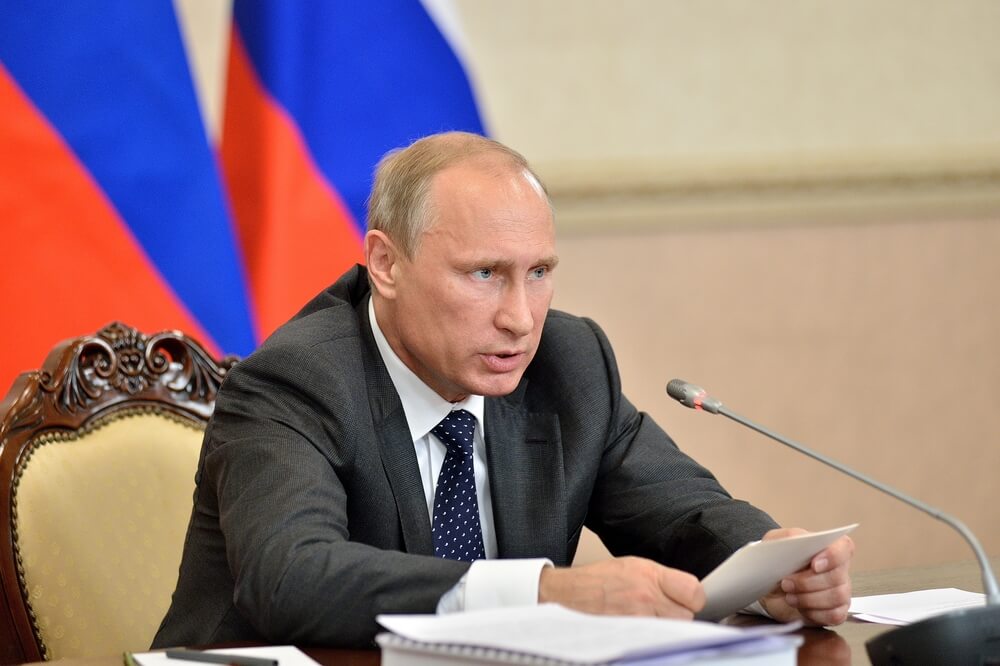Putin Approves Framework for ICO, Cryptocurrency Regulation

Russian President Vladimir Putin has personally approved a timeline for a framework that will regulate initial coin offerings (ICO) and cryptocurrency mining operations.
Putin Orders Parliament to Regulate ICOs
According to official Kremlin documents published this week, Putin signed several orders intended to regulate cryptocurrency usage within the country. Most notably, the orders mandated that Russian Prime Minister Dmitry Medvedev and central bank chief Elvira Nabiullina must draft regulations that bring ICOs in line with existing laws governing securities.
Medvedev is also tasked with two more significant responsibilities. One order instructs him to implement regulations that will require Russian cryptocurrency mining operations to register with the government and determine the appropriate procedure for the government to tax income garnered from those operations. Another requires him to determine the legal status of cryptocurrencies used within the financial sphere “based on the obligation of the ruble as the only legal tender in the Russian Federation”. All of these tasks must be completed by July 1, 2018.
Finally, the government plans to establish a regulatory sandbox that will allow the central bank consider additional regulations for cryptocurrencies and other fintech products, as well as draft proposals for a “single payment space” created for the member states of the Eurasian Economic Union (EAEU).
Laying the Groundwork for the ‘CryptoRuble’
This latter mandate may be in preparation for the launch of the “cryptoruble”, a state-controlled cryptocurrency that Putin reportedly approved during a closed-door meeting earlier this month. A domestic Russian media outlet cited an official who stated that the government was eager to release the cryptoruble before another EAEU member state beat them to the punch. Fellow EAEU member Kazakhstan, for instance, recently announced plans to experiment with adopting a national cryptocurrency.
Details about the cryptoruble remain slim, but the government will reportedly levy a 13% tax on individuals and organizations who attempt to trade their cryptorubles for fiat currency but cannot demonstrate that the coins were obtained legally. Critics argue that this policy, if implemented, will allow the government to profit from money laundering operations and other financial crimes.
Featured image from Shutterstock.